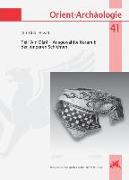- Start
- Tell Ain Dara -
Tell Ain Dara -
Angebote / Angebote:
Der nordwestlich von Aleppo in Syrien gelegene und heute z. T. kriegszerstörteTell mit Unterstadt von 'Ain Dara ist vor allem für seineeisenzeitliche Zitadelle mit qualitätvollen Basaltreliefs berühmt. Seine wenig bekannten jüngeren Schichten reichen von der Zerstörung des eisenzeitlichen Tempels in der 2. H. 8. Jh. v.Chr. bis in die mittelislamische / kreuzfahrerzeitliche Periode. Das Keramikrepertoire spiegelt mit vielen Fremdeinflüssen aus Nachbarregionen und aus der Ferne die besondere Lage des Fundorts wider, der in der fruchtbaren mediterranen Landschaft des 'Afrin-Flusses am Schnittpunkt wechselnder politischer Machtgebiete lag. 'Ain Dara war in die Handelsnetzwerke der jeweiligen Epochen eingebunden und importierte Alltagsgüter und Luxusgüter gleichermaßen. Bis ins 6. Jh. v.Chr. und dann wieder frühestens ab dem 4. Jh. v.Chr. kann Siedlungsaktivität nachgewiesen werden. In den letzten beiden vorchristlichen Jh. erfolgte ein großer Aufschwung, um die Zeitenwende ein Siedlungshiatus, der in der Spätantike mit dem Auftreten frühislamischer Keramik endete. Diese Höhen und Tiefen stehen evtl. in Zusammenhang mit gegensätzlichen Entwicklungen im benachbarten Jinderes / Gindaros.
The tell and lower city of 'Ain Dara north-west of Aleppo in Syria are mainly known for their Iron Age citadel with high-quality basalt reliefs and were partly destroyed during the ongoing war. Its later strata are much less well-known and comprise the period between the destruction of the Iron Age temple in the 2nd half of the 8th century B.C. and the Middle Islamic / Crusader Period. The pottery repertoire with its many foreign influences from neighbouring regions and from afar reflects the special location of the site situated in the fertile Mediterranean landscape of the Afrin River at the intersection of changing political dominions. 'Ain Dara was part of the trade networks of the respective periods and imported both everyday and luxury goods. Settlement activity is attested until the 6th century B.C. and again from the 4th century B.C. onwards at the earliest. A major revival took place in the last two centuries B.C., and around the birth of Christ a settlement hiatus occurred that probably ended in Late Antiquity with the appearance of Early Islamic pottery. These ups and downs were possibly connected to contrarian developments at neighbouring Jindires / Gindaros.
Libri-Titel folgt in ca. 2 Arbeitstagen
